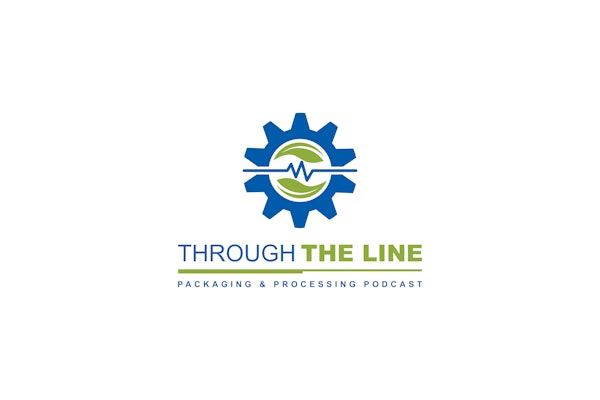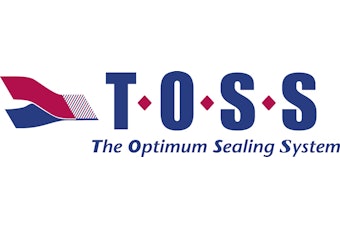Throughout the first half of 2023, pharmaceutical trading partners have been steadily making progress toward the November 27 Drug Supply Chain Security Act (DSCSA) implementation deadline. By that date, manufacturers, distributors, and dispensers must begin to interoperably and electronically exchange data identifying each prescription drug package purchased and sold.
However, manufacturers and distributors still face very real issues in connecting their organizations’ data systems. The Healthcare Distribution Alliance’s (HDA) final EPCIS Implementation Benchmarking Survey reaffirmed that despite companies’ best efforts, many supply chain trading partners are struggling to establish EPCIS connections, test systems, and onboard trading partners.
The package-level data exchange Congress envisioned in 2013 is interdependent for each supply chain segment and becomes effective for all trading partners at the same time. This interdependency means that the ability of wholesale distributors and dispensers to purchase and resell needed medicines from manufacturers is dependent upon a manufacturer’s provision of this package-level data. There is a complexity surrounding this requirement and the development of necessary systems. Due to many factors, including the problem of how to handle exceptions, numerous trading partners will not be able to send accurate, package-level data to their customers.
Time is not on the side of the pharmaceutical supply chain. In February, HDA flagged several implementation issues while making recommendations to the agency to help keep the supply chain on track for compliance. Given that the industry is still not where it needs to be as fall approaches — and that the U.S. already faces persistent drug shortages — a new approach is necessary to ensure the continued safe and secure delivery of medicines come November 27.
Related Reading: The Simple Email Issue Holding Up DSCSA-Implementation Activity
A workable solution toward DSCSA compliance
On June 2, HDA wrote to FDA recommending that the DSCSA’s final requirements be implemented in phases to build capacity and stabilize these complex processes. The phased approach would include a limited FDA grant of enforcement discretion to certain DSCSA requirements and trading partners, with full implementation phased in over a period of two years. Trading partners would continue current business practices needed to move medicines to patients safely and securely while also continuing the push toward the package-level tracing and enhanced supply chain security Congress envisioned.
HDA believes a phased approach is the best option to avoid drug shortages due to the interdependency of the data exchange. When the final phase of the DSCSA goes into effect, the ability of wholesale distributors and dispensers to purchase and resell needed medicines from manufacturers is dependent upon a manufacturer’s provision of the serialized data.
Without receipt of the requisite serialized data from its supplier, a wholesale distributor may not lawfully accept ownership of a covered drug product package or resell the package, which will lead to delivery disruptions to dispensers and even shortages of needed medicines. The only alternative would be to accept and distribute a drug package without the required serialized data, thereby risking enforcement action for non-compliance with DSCSA. Both scenarios have the potential to cause significant disruptions, delays, and prevent access for patients across the U.S.
HDA believes the phased approach would mitigate these disruptions, with the following segments culminating in full compliance with the DSCSA’s package-level data requirements by November 2025:
Phase 1, November 27, 2023–November 26, 2024:
- During the first phase, manufacturers would provide package-level data to wholesalers, or obtain an exemption from FDA. All companies will continue to share lot-level data with each prescription transaction to distributors. Distributors and dispensers, meanwhile, will maintain their current DSCSA-compliant practices.
Phase 2, November 27, 2024–May 26, 2025
- In the second phase, manufacturers must comply with all DSCSA requirements or obtain an exemption from FDA and continue to provide lot-level data to customers to ensure prescription drugs move in the supply chain. Wholesale distributors will begin providing package-level data to dispensers with each prescription drug transaction, while also continuing to provide lot-level data. Dispensers would continue to maintain their current DSCSA business processes.
Phase 3, May 27, 2025–November 26, 2025
We urge FDA to maintain the pressure on trading partners to ensure full implementation of the DSCSA. Broad enforcement discretion, without conditions and oversight, is likely to result in even more delay.
Continued collaboration and education are key
No matter the FDA’s decision on the impending deadline, DSCSA compliance efforts and progress throughout the supply chain should not stop. Countless pharmaceutical wholesale distributors, manufacturers, and other supply chain partners have invested years of work and millions of dollars to reach the requirements set forth in the DSCSA and will continue to do so. Likewise, those companies that have not started their implementation must focus their attention on these critical requirements now.
To better prepare supply chain partners as the industry works toward the law’s 2023 finish line, HDA, in our role as a convener and educator on DSCSA requirements, will host our annual Traceability Seminar two months early on August 29–31, 2023, in Washington, D.C. The seminar will bring together healthcare supply chain leaders, FDA, and other stakeholders to hold important conversations as the industry works to bolster the safety and security of the healthcare supply chain. We encourage anyone in the industry who is interested in attending to visit the HDA website for more information.
The HDA Traceability Seminar will serve as an opportunity for stakeholders to learn more about the many facets of this comprehensive change to the nation’s pharmaceutical supply chain. While a phased approach to product serialization may mean the implementation of DSCSA takes longer, it is important to ensure that this law is implemented in a manner that Congress intended while ensuring the stability of the supply chain on which patients depend. The time is now to forge a workable path forward.
Additional resources are available at HDA.org/pharmaceutical-traceability.
—Patrick Kelly, executive vice president, government affairs, Healthcare Distribution Alliance; Elizabeth A. Gallenagh, general counsel and senior vice president, supply chain integrity, Healthcare Distribution Alliance























